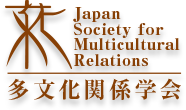テーマ:「教育ディベートの新たな可能性」 The Future Potentials of Educational Debate
講師:綾部 功准教授 (東海大学文学部英語文化コミュニケーション学科) Isao Ayabe (Associate Professor, Tokai University)
日時:2014年2月23日(日)February 23 (Sun), 2014
14:00 – 17:00
場所:東海大学代々木キャンパス(Tokai University Yoyogi Campus)
2号館2C11(多目的室)
〒151-8677 東京都渋谷区富ヶ谷2-28-4 TEL:03-3467-2211
http://www.u-tokai.ac.jp/about/campus/yoyogi/
スケジュール(Schedule)
14:00〜15:50 話題提供(Presentation)
研究発表、参加者による教育ディベートの体験
(Presentation,Participants experience educational debate)
15:50〜16:10 質疑応答(Question and Answer)
16:10〜16:25 休憩 (Break)
16:25〜17:00 フロアとのディスカッション (Discussion)
17:30〜19:00 懇親会 (Get-together meeting over dinner)
**********************************************************
参加費:無料 (Fee: Free)
研究会終了後、懇親会を予定しております。会費2800円、東海大学代々木キャンパス内会場、詳細は参加者へ後程お知らせします。
申込方法: 下記の申し込み要領に従って、担当者 山本 志都
yamamotoshizu@gmail.comまでご連絡ください。
タイトルに「関東地区研究会申し込み」と記入してください。
懇親会に参加される方は、2月16日(日)までにお申し込みをお願いします。
なお当日懇親会をキャンセルされる場合、恐れ入りますが懇親会費を頂戴します。
氏名
所属
メールアドレス
申し込み内容 3つのうち1つを選んでください
(1) 研究会・懇親会に参加します
(2) 研究会のみに参加します
(3) 懇親会のみに参加します
**********************************************************
【氏名】
綾部功(Ayabe Isao)
【プロフィール】
東海大学文学部英語文化コミュニケーション学科准教授
(Associate professor in the Department of English at Tokai University)
専門はコミュニケーション研究(対人コミュニケーション、異文化間コミュニケーション)。学生へのディベート指導を行い、国内および海外のディベート大会においては審判として務めている
(His field of study is communication studies -interpersonal communication and intercultural communication. He also helps students improve their debating skills as well as adjudicates in domestic and international debating tournaments.)
【タイトル】
「教育ディベート」の新たな可能性(The Future Potentials of Educational
Debate)
【概要】
最近、「グローバル人材」育成の手段のひとつとして、ディベートが新聞、雑誌等のメディアに取り上げられている。また、大学生だけでなく、高校生も海外のディベート国際大会に参加する機会も増加している。本発表では、これまでの「教育ディベート」(「競技ディベート」と「授業ディベート」)の変遷と、その新たな可能性についての発表を行う。また、国際大会での競技の様子、小学校での日本語ディベート教育の取り組み、コロンビア大学のESLクラスでのディベート導入の実例などを、ビデオ資料を用いて紹介する。参加者に実際にディベートを体験していただく機会を設けたい。参加者との情報交換や意見交換を行いたい。
These days, debate has been featured in mass media such as newspapers and magazines as one of the ways to develop “global human resources”. Also, opportunities for not only for university students but also for high school students to compete in international debating tournaments have been increasing. In this presentation, I will provide information about the transition of “academic debate” (i.e. competitive debate and classroom debate) and their future potentials to achieve some educational objectives. I am hoping to have an opportunity to exchange information and ideas with other participants.

